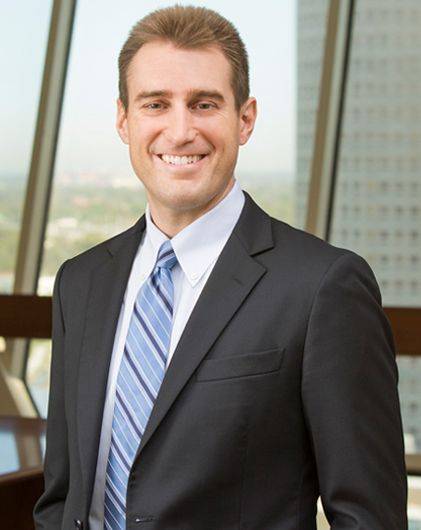Are Prominent NBA Arrests Anomalies or a Sign of Things to Come?
Jamie Dimon was famously quoted this month warning about financial problems in the credit market, saying “when you see one cockroach, there are probably more.” Sadly, he could have easily been speaking about the shocking headlines from this week’s NBA arrests.
Integrity of professional sports leagues, and the gaming industry, is paramount to all involved: fans, league offices, teams, players, officials, investors, and anyone else that consumes the content. It is a key driver – if not the key driver – for entertainment. The arrests of Chauncey Billups, Damon Jones and Terry Rozier for alleged interference with that integrity raises myriad questions about the overlay of professional sports, sports betting and the gaming industry. We tackle a few of those pressing areas here.
What does this mean for the relationship between professional sports leagues and the gaming industry?
Perhaps the most shocking revelation in the indictments is that both relate to organized criminal activity. In the Billups indictment, the Cosa Nostra is alleged to have organized the illegal poker matches, defrauding the unwitting participants. In the Rozier matter, the insider information was provided to an organized network of bettors, enabling them to defraud lawful sports wagering operators.
Some commentators may jump to the conclusion that these arrests relate to the wide-ranging legalization of sports betting across the country, arguing that the ubiquity of legal sports wagering triggers impulses that lead to this kind of criminal behavior. This argument ignores the protections that legal sports wagering operators employ to detect integrity problems, the same systems that likely alerted authorities to the Rozier case. The systems receive information streams from hundreds of legal operators around the world. The data is aggregated and scrutinized to detect anomalies in previously established patterns. The systems likely determined that the Rozier proposition bets on the game in question far outpaced the average bets in other Miami games.
These systems worked to detect other high profile insider betting scandals, including a 2022 UFC match fixing case, the 2023 Alabama baseball coach Brad Bohannon case, and the 2024 Jontay Porter match fixing matter. These same systems are not mandated for the fledgling predictions market operators (e.g. Kalshi or Polymarket) or illegal offshore betting operators, each of which are largely unregulated. These unregulated operators are also not required to employ “know your customer” systems or compulsive gaming protections for their patrons, both of which are mandated by state gaming regulators in the U.S. Since this unregulated gaming is not taxed, states lose valuable resources to collaborate and further protect their citizens against unlawful activity.
The integrity and player protection safeguards put in place by the regulated sports books are also approved by the sport governing bodies around the world, who have long monitored and prevented match fixing. Examples of these programs include the Olympic Movement Unit on the Prevention of Competition Manipulation and the Fight the Fix Program run by UEFA.
U.S. sport governing bodies have also taken an active role to work with operators and state regulators, developing policies and educating sport participants. Examples of these programs include the NFL, NASCAR and the NCAA, who have all have taken active steps to protect the goodwill that these bodies have built around the world.
Collaboration of these integral partners with legal sports operators is the key to solving the integrity problem. As the American Gaming Association argues, “Bringing sports betting out of the shadows and into a transparent, regulated marketplace deters attempts to undermine the integrity of games. That’s what makes the regulated market’s strong commitment to fair play so critical – as well as its ability to bring illegal activity to light.” So, contrary to some of the knee-jerk reactions to this recent scandal, legal betting operators are not the problem, but rather the solution to the integrity problem.
What should be expected next in the legal process?
The sports figures are all accused of several federal crimes. The alleged conduct varies based on the accused but generally involves an illegal poker operation or disclosing confidential information before it was publicly available that impacted betting activity on games (and, in some instances, both). The cadence of these federal prosecutions will follow a typical rhythm. The length of each will depend on the breadth of information available, desired, and whether the charges are contested through trial.
- Breadth of information available: Based on available information, it appears vast federal resources were devoted to the yearslong investigation. So, it is likely that there is much information available. The amount of commerce impacted, when compared against the apparent federal resources expended, suggests the investigation was designed to have a deterrent, or warning, effect.
- Information desired: This will depend on whether the recent arrests were the tip of the iceberg, meaning the primary targets of the investigation are yet to be charged, or whether these are the middle or end targets. One factor will be whether the individuals arrested have information germane to the investigation and, if so, whether they are willing to share it and cooperate.
Perhaps the primary driver, however, is the constitution. Each is cloaked with the presumption of innocence. No one accused has been proven to have done anything wrong. These are accusations, and many of the accused have already entered pleas of not guilty, meaning they contest the charges. Each has the right to trial by jury, and the prosecution must prove each allegation beyond, and to the exclusion of, every reasonable doubt. Trials can take years to occur. These cases are far from over, and much will likely change between now and the end.
Takeaways
Integrity has always been, and will remain, a tenet of the sports industry. Federal investigations, regulation and oversight have always been present. It appears, however, that with the overlay of legalized sports betting across the country, those measures are becoming more proactive, whereas historically they were reactive. That trend will be followed closely across the industry.
Please contact Jeff Barbin, Rhett Parker or any member of the Phelps Litigation, Gaming or Media, Sports and Entertainment teams if you have questions or need advice or guidance.



